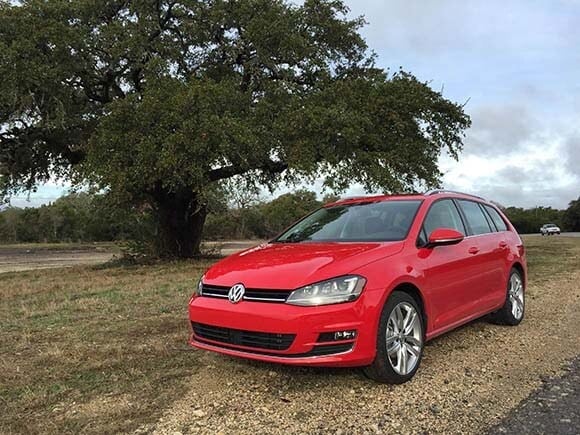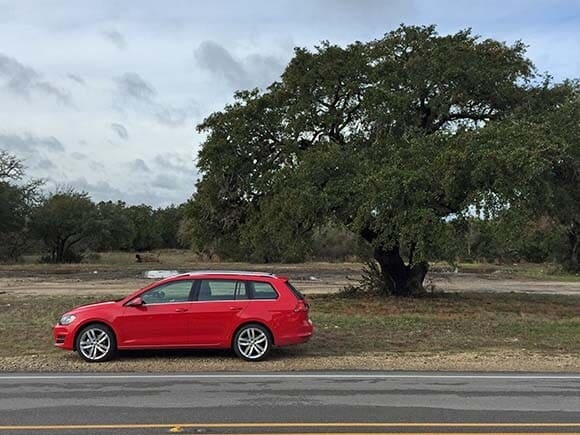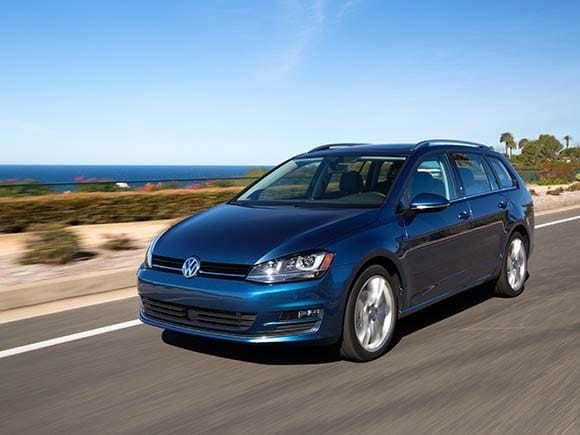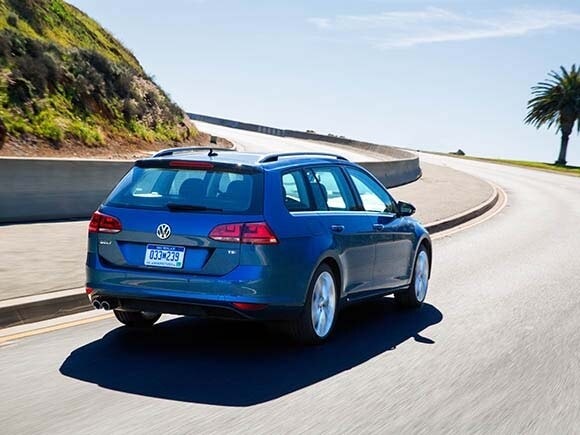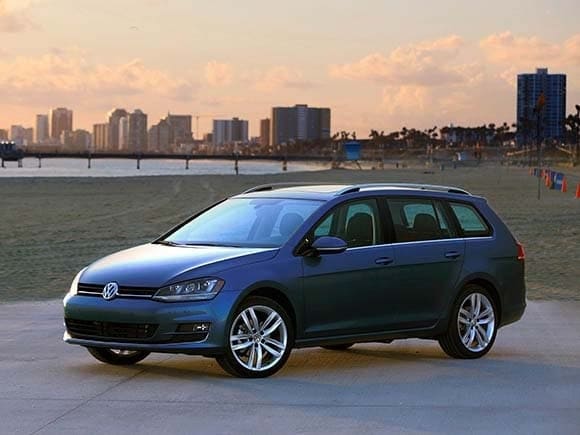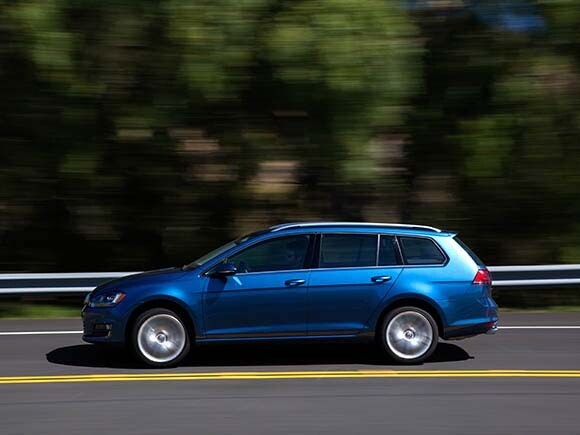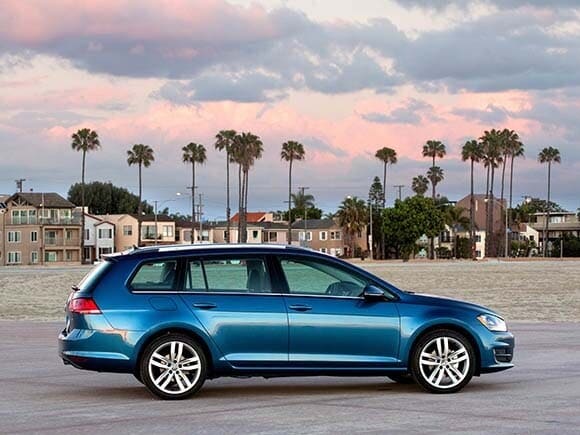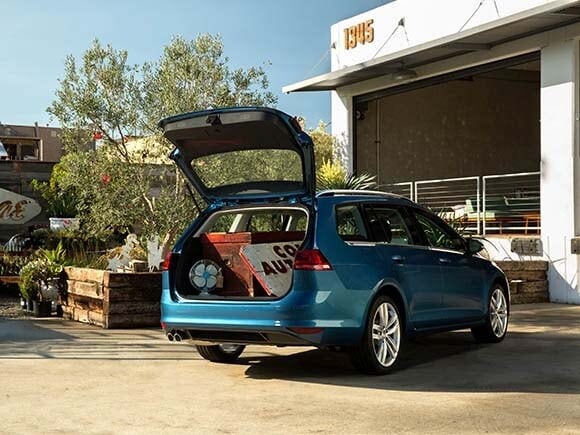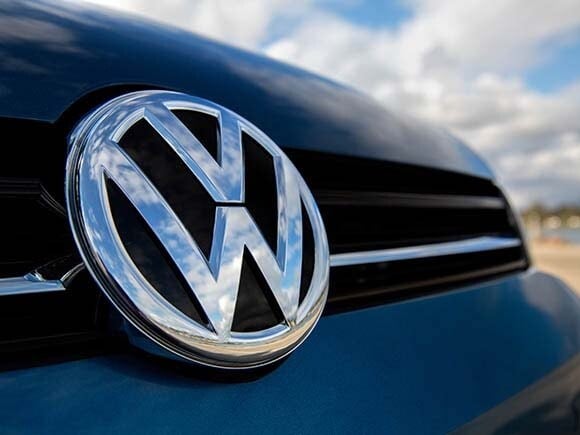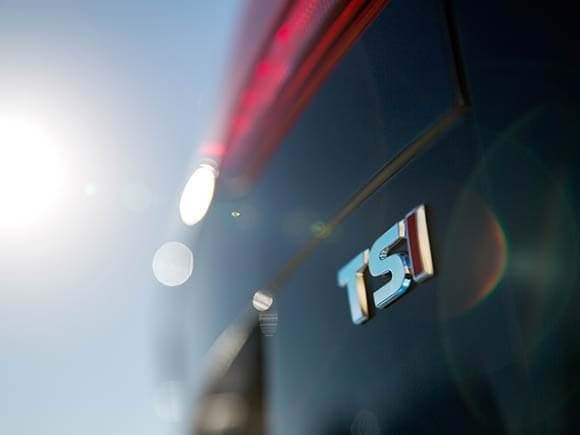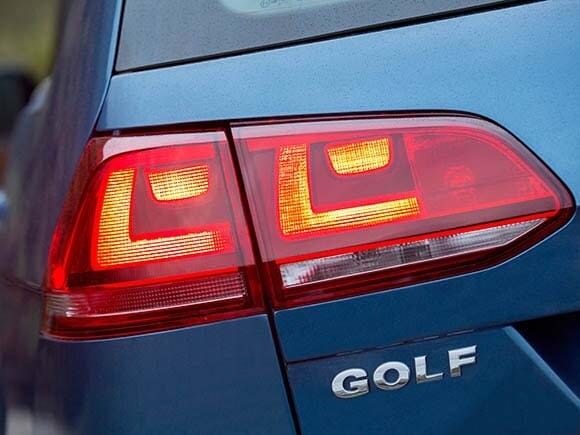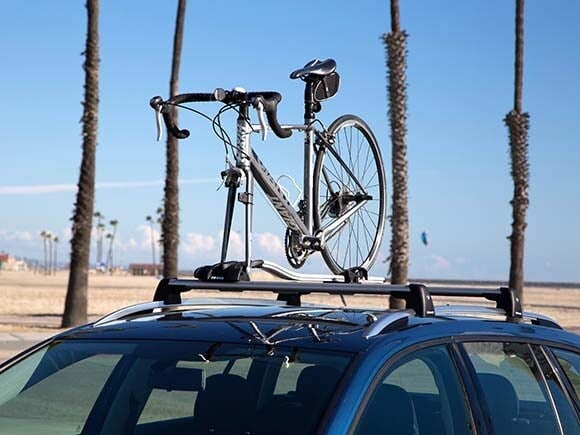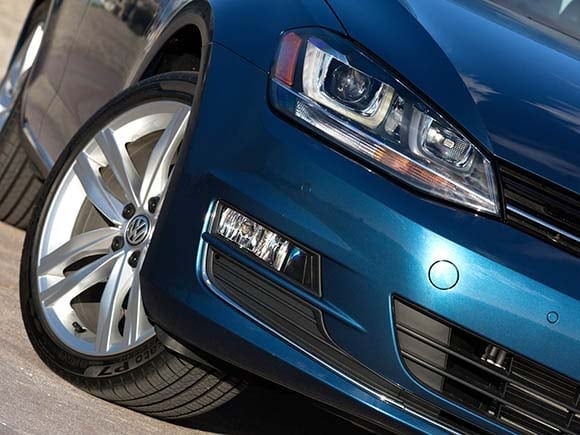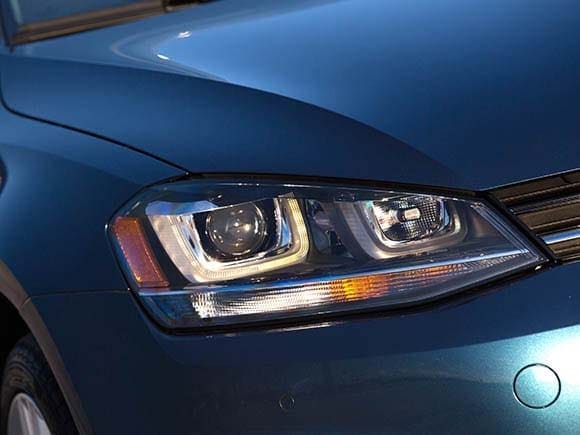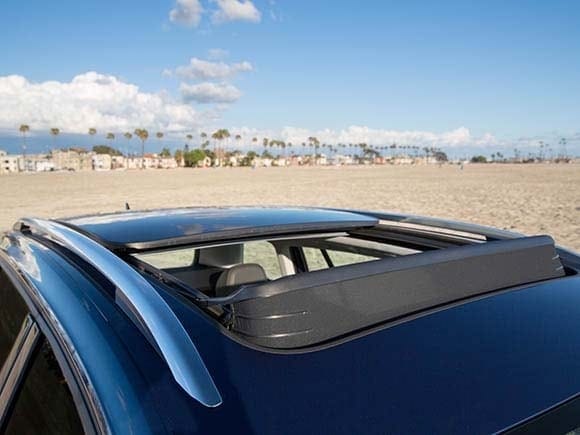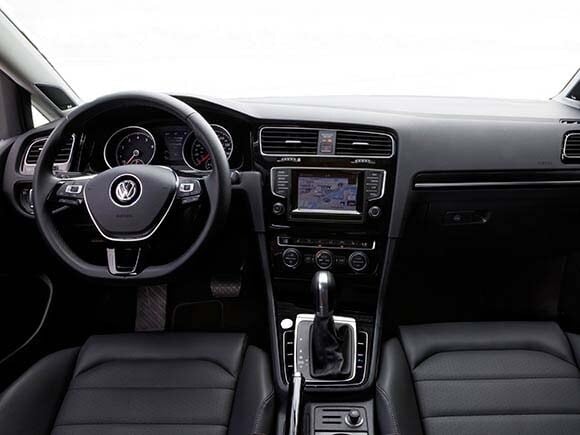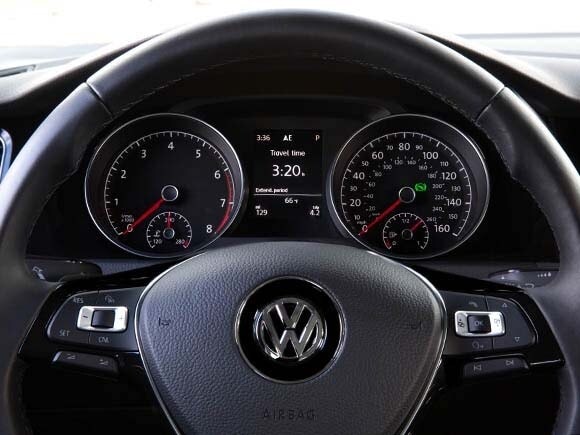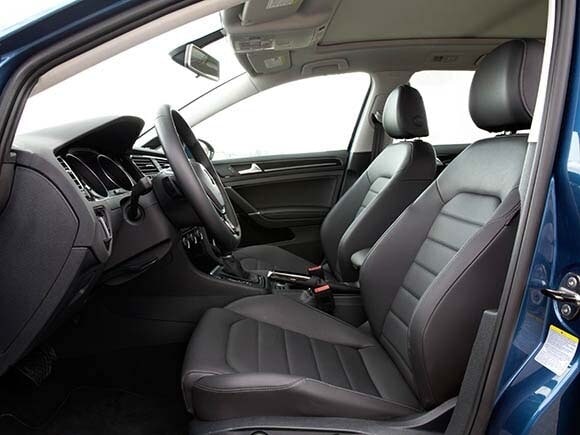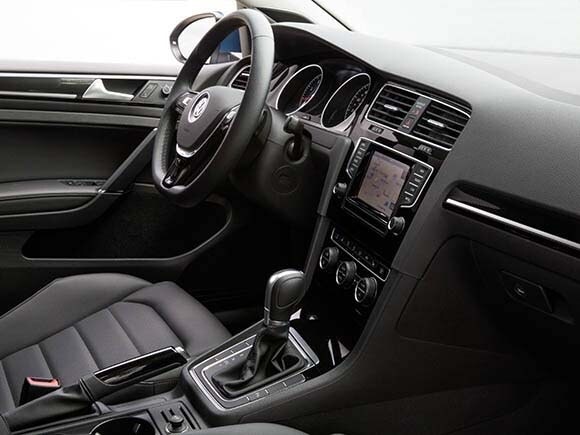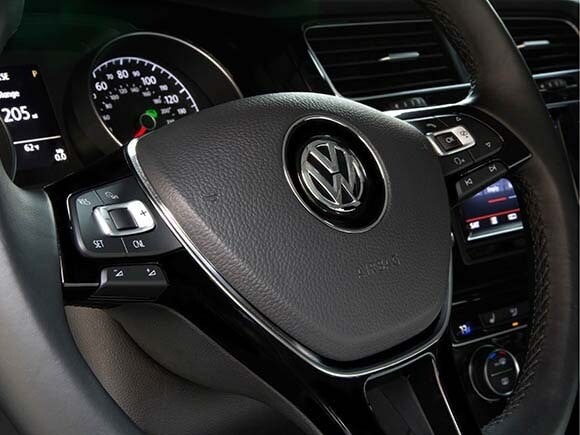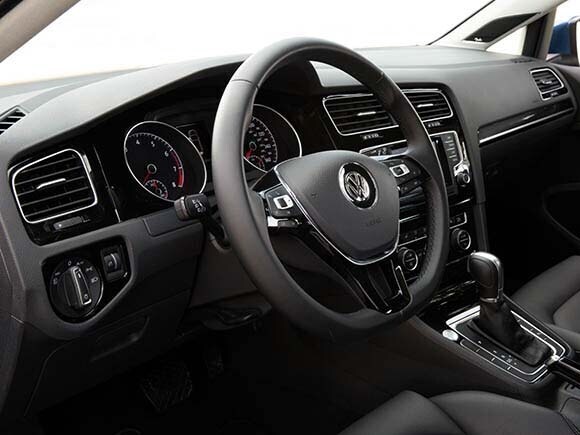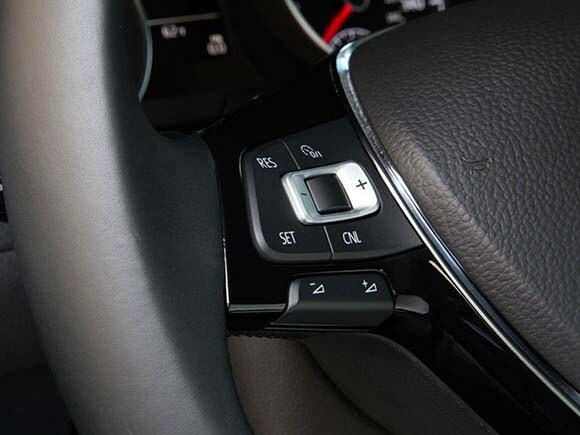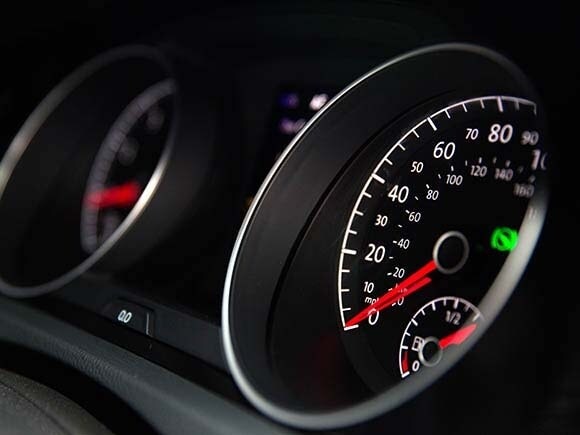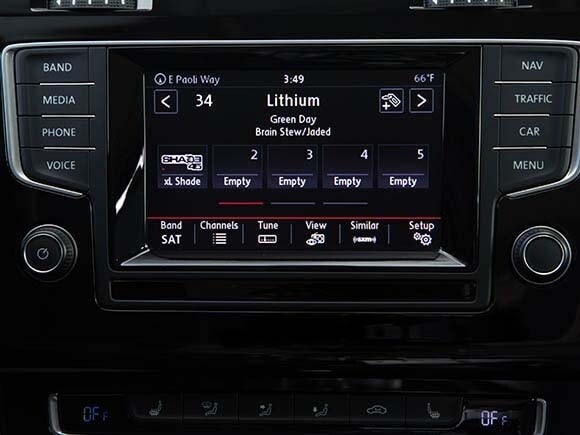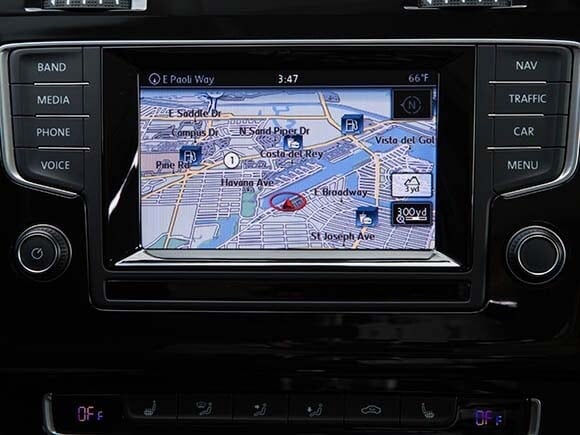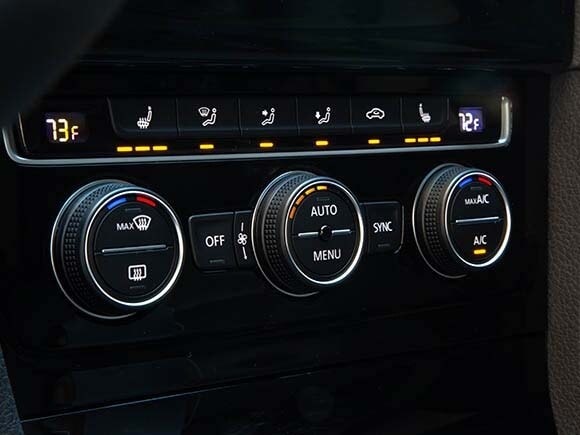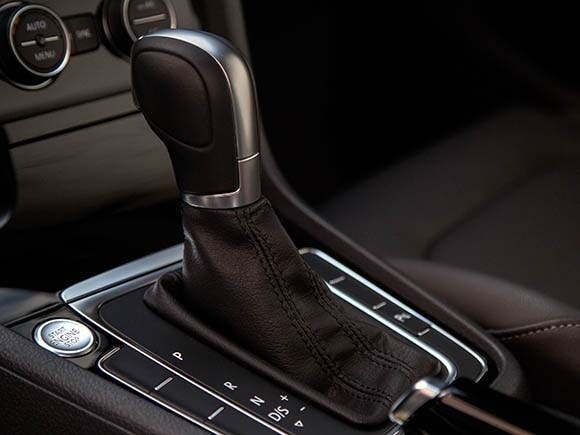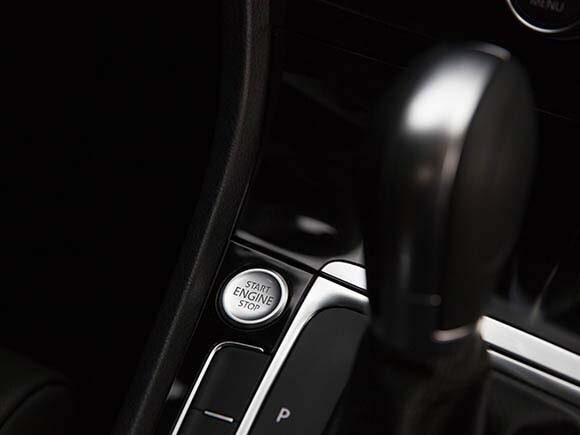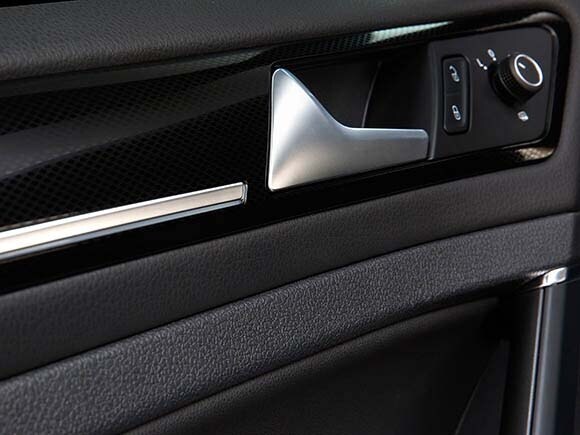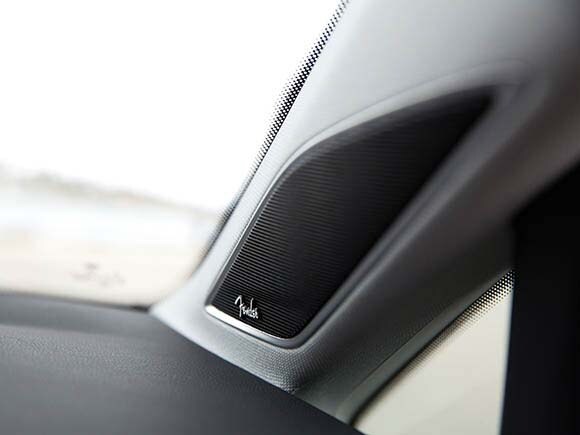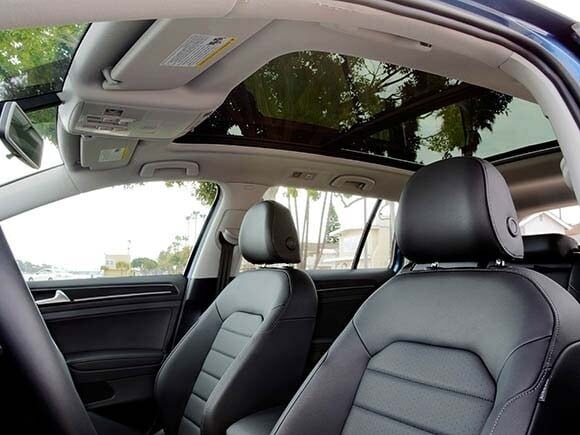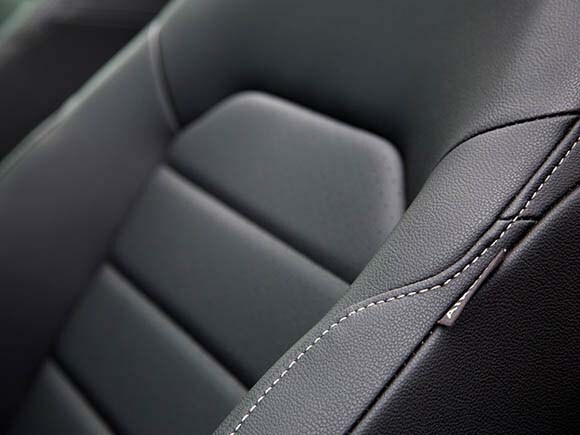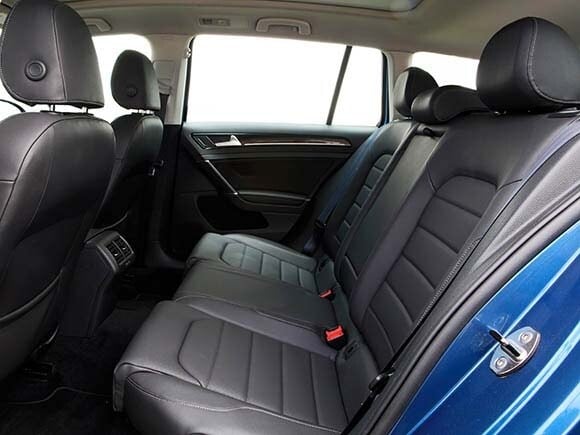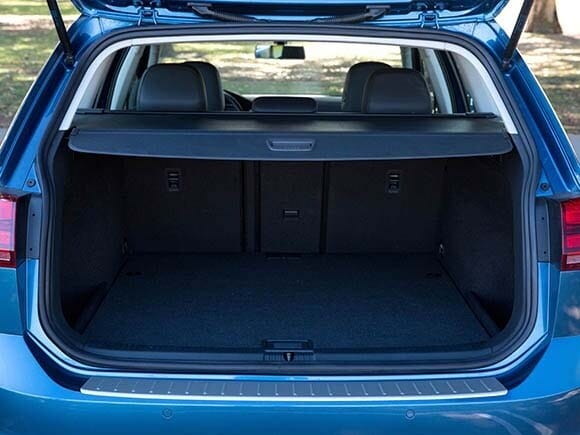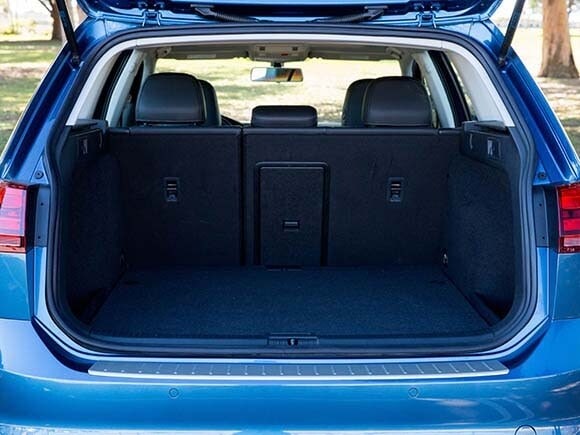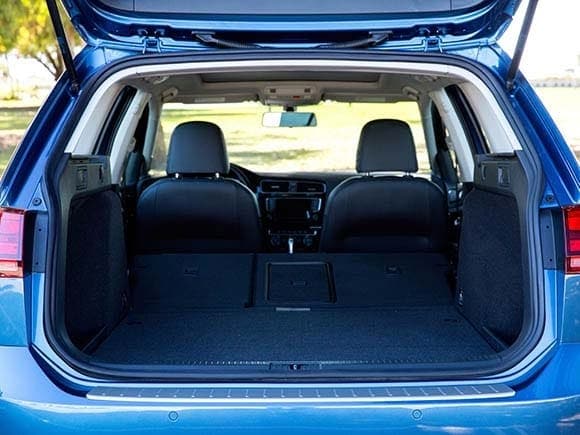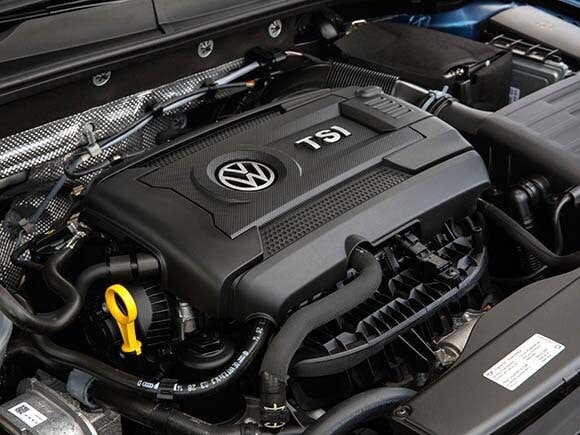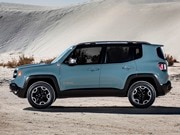The 2015 Golf SportWagen replaces last year’s Jetta SportWagen, a car which in other countries was known as the Golf Variant. Confused? Don’t be, because from a practical standpoint the name just puts the Golf SportWagen on the liftback branch of the Jetta/Golf family tree, where it belongs.
And if you liked the Jetta SportWagen, you’re going to love this new Golf SportWagen. In addition to being exactly what it sounds like — a Volkswagen Golf with more cargo space — the new Golf SportWagen brings a host of refinements and upgrades to the formula to broaden its appeal, and maybe sway a few compact SUV shoppers into the driver’s seat.
Crossover cargo space
The Golf SportWagen offers 30.4 cubic feet of cargo space, and that expands to 66.5 cubic feet with a quick tug of the new releases mounted in the cargo-area. Compare that to the standard Golf — with 22.8 cubic feet, expanding to 52.7 cubic feet — and you have a sizeable and useful bump in capacity. Interestingly, there’s no other compact wagon like the Golf SportWagen on the market, with so-called "wagons" like the 5-door Subaru Impreza really competing against the standard Golf hatchback. The hybrid Toyota Prius V comes close and offers a bit more space, but it plays to a different audience. Volkswagen compares the SportWagen to compact crossovers SUVs like the Mazda CX-5 and Chevrolet Equinox, citing the larger cargo area and benefits of a lower load floor and roof. Next year an all-wheel drive model will be available, although it may take the form of the Subaru Outback-like Golf Alltrack model, which Volkswagen has confirmed is coming to the U.S. sometime next year.
Golf SportWagen buyers have two engine choices to power the front wheels. The Golf SportWagen TSI gets the same 170-horsepower 1.8-liter turbocharged 4-cylinder we know and love from our long-term 2015 VW Golf, thankfully replacing the 5-cylinder base engine from last year’s Jetta. It smoothly and quietly delivers 25 mpg in the city and 36 mpg on the highway with the standard 5-speed manual transmission, losing only 1 highway mpg if you opt for the 6-speed automatic. But if history is a guide, the best seller will be the SportWagen TDI, with its 150-horsepower 2.0-liter turbocharged diesel engine. Put it this way: VW sold about 20,000 or so Jetta SportWagens each year; roughly 80 percent of them had a diesel engine, and about 40 percent of those had a manual transmission. Why is it so popular? The quiet operation, excellent low-end torque, and smooth shifting 6-speed manual make it the most fun SportWagen to drive, and the 31 mpg city/43 mpg highway fuel economy (42 mpg highway with the automatic) means there’s no fuel economy penalty for your driving pleasure.
Also: Kelley Blue Book Best Buy Awards of 2015
Balance between sport and comfort
Neither engine makes the Golf SportWagen fast, but they’re both quick enough, and the low-end torque of the diesel is especially satisfying. The automatic transmission in the TSI we drove was quick and efficient, and while the TDI’s manual shifter felt good, we’d prefer a more positive clutch engagement. The suspension in both cars strikes an excellent balance between comfort and handling, making the SportWagen just as satisfying to hustle through corners as it is to just cruise down the highway. The larger wagon body doesn’t add any appreciable road noise, either. The electrically assisted power steering feels nicely weighted and offers good feedback, and other manufacturers offering supposedly sporty cars with similar systems should take notes.
Of course, you have to take the good with the bad. Volkswagen still uses a proprietary setup to connect a smartphone instead of a standard USB port, and strangely, the dongle in the test cars Volkswagen provided was the old Apple 30-pin connector that’s two years out of date. Pushing the power button on the infotainment system doesn’t just shut off the radio, it turns off the whole system, even navigation. The backup camera’s screen gets partly cut off because of a parking sensor overlay that pops up each time, and the infotainment system’s small screen is pretty low resolution by today’s standards. Finally, in one of the cars we also noticed a small rattle from the door panel and dash over rough pavement.
Attractive pricing
Prices for the 2015 Golf SportWagen don’t just hold the line, on the diesel models they actually drop. Unlike previous models, 2.0-liter TDI is now available in the base S model, meaning you can get a diesel-powered Volkswagen Golf SportWagen for just under $25,000, a decrease of about $2,000 compared to the SE-based Jetta SportWagen diesel. The base gasoline-powered SportWagen TSI starts at a reasonable $21,395; that’s about $400 higher than last year’s Jetta-labeled version, but VW points out that’s with about $700 worth of extras, Golf SportWagen buyers are still ahead of the game.
With the expanded lineup, lower prices, and a markedly better base gasoline engine, we think the 2015 Golf SportWagen has a good chance to expand its appeal beyond its core constituency of diesel-wagon enthusiasts. There’s a lot to like already, and with more features coming for the 2016 model year — including a more modern infotainment system and active cruise control — we wonder if Volkswagen’s little SportWagen will be so popular that it inspires something unexpected like a GTIWagen.
More Compact Cars
Check out our Compact Car Buyer’s Guide to see what’s new and what’s next.
